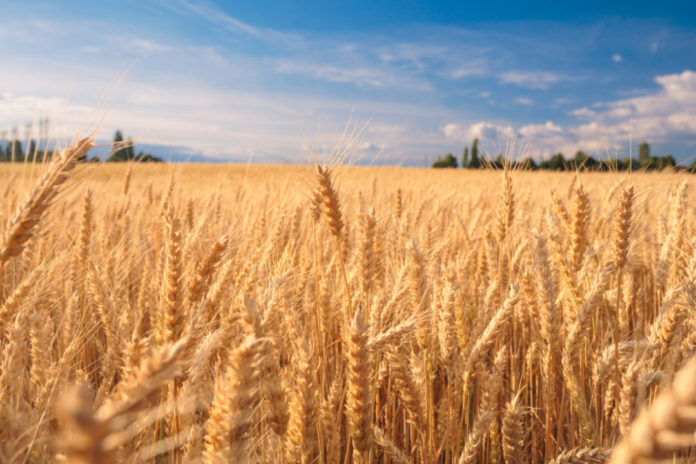An ambitious new research initiative by the International Maize and Wheat Improvement Center (CIMMYT) is aiming at shrinking the nitrogen footprint of agriculture by developing a breakthrough technology based on nature’s own solutions: a natural process called biological nitrification inhibition (BNI).
The innovation research initiative dubbed CropSustaiN will focus on developing new wheat varieties that are also capable of reducing agriculture’s climate change impact and environmental footprint and could have sweeping implications for global food security and environmental sustainability.
“BNI could be a part of how we revolutionise nitrogen management in agriculture. It represents a genetic mitigation strategy that not only complement existing methods but also has the potential to decrease the need for synthetic fertilisers substantially. The mitigation potential of better nitrogen fertiliser management could be as impactful for the Global South as the Green Revolution,” explains Bram Govaerts, Director General, CIMMYT.
Rooted in a seed-based genetic strategy, BNI leverages a plant’s innate ability to suppress soil nitrification through the release of natural compounds.
This approach potentially promises to curb the use and leaching of synthetic nitrogen fertilisers—a significant contributor to greenhouse gas emissions and water pollution—without compromising crop (wheat) yield or soil vitality.
The BNI-method contrasts with synthetic nitrification inhibitors and could offer a more scalable and cost-effective solution, potentially reducing nitrogen fertiliser usage by 20%, depending on regional farming conditions.
USD 21.1 million grant boost
The CIMMYT research initiative has received a grant boost of up to USD 21.1 million from the Novo Nordisk Foundation to assist in leading the innovative research.
“Success in this initiative could lead to a major shift in agricultural practices globally, benefiting both the planet and farmers’ livelihoods. In addition to using less fertiliser, cost for the farmer will be minimal because all the components are already in the seed. This initiative could, potentially, be extended from wheat cultivation to include other staple crops like maize and rice,” says Claus Felby, Senior Vice President, Biotech, Novo Nordisk Foundation.
By harnessing the power of genetics in plant seeds, CropSustaiN leverages the natural process of BNI to develop new wheat varieties that require significantly less nitrogen fertiliser. Using conventional breeding, genes from wild crop relatives like wild rye, which have inherently better nitrogen use efficiency, are incorporated. CIMMYT makes such breeding products available to its global network of partners for the international public good.
The agenda for CropSustaiN includes validating BNI efficacy across diverse climates and integrating the technology into mainstream agricultural protocols. While the venture carries success risks, the potential rewards—ranging from widespread BNI adoption to valuable insights into nitrogen management—position it as a pioneering initiative. By ensuring that the seeds developed through this program are accessible to all farmers without exclusive patent rights, the Novo Nordisk Foundation is leading an inclusive approach to agricultural innovation.
Built on previous research
CropSustaiN builds on the joint research by the Japan International Research Center for Agricultural Sciences (JIRCAS) and CIMMYT that started in 2015. The initiative has already yielded BNI wheat lines tested over three farming seasons. These innovative crops are now poised for further development and for scaling worldwide, indicating a potential paradigm shift in agricultural practices.
The Novo Nordisk Foundation has already laid the groundwork for CropSustaiN by funding related BNI research at CIMMYT, the International Crops Research Institute for the Semi-Arid Tropics (ICRISAT), Aarhus University, the University of Aberdeen, and the University of Copenhagen -thus fostering an ecosystem for research innovation.









